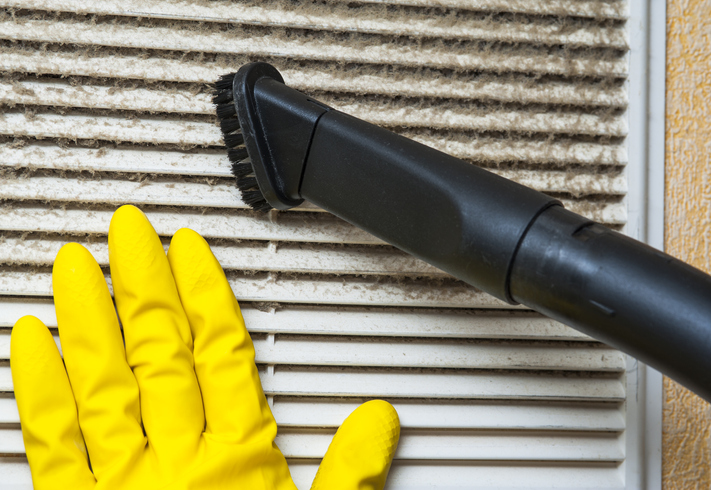Mold thrives in humid, wet environments, making your AC unit the perfect breeding ground and place for mold and mildew to grow and spread. Mold can impact a resident's health and can cause your AC unit to work inefficiently. If the mold continues to grow and spread unchecked, a musty smell can circulate through the air ducts and into your home. Thankfully, our experienced HVAC technicians at Spoor's Heating & Air Conditioning have outlined some tips on how to remove that persistent musty smell in your home.
To help alleviate the risk of mold in your home, as well as remove musty odors, Spoor's Heating & Air Conditioning offers a wide range of residential HVAC products and services. Contact our HVAC company to schedule HVAC services today!

Replace Air Filters
A common source of a musty smell in your home is a clogged or old HVAC filter. As an air filter ages, microscopic particles can build up and decrease its efficiency. We recommend replacing your air filter every 90 days for a home with no pets, every 60 days for a home with one pet, and every 20–45 days for a home with more than one pet. Even after its replacement, if the smell lingers, we recommend considering a filter with a higher MERV rating that is more effective at trapping airborne particles.
Remove Debris From Air Ducts
If your air duct has become dirty or obstructed, it can result in a musty smell as well as a decrease in indoor air quality. For a temporary solution, you can sprinkle baking soda inside the ducts to help reduce the smell. Dust filter pads, which inhibit airborne particles, can also be inserted inside the vent grates. If baking soda and dust filter pads don't work, or if there are other issues such as vermin in the vents, severe dirt and dust build-up, or leaky ductwork, we recommend calling in a professional.
Clean The Evaporator Coil
An HVAC unit has two sets of coils, the interior evaporator coil and the exterior condenser coil. Commonly, it is the evaporator coil that is causing the musty smell. To alleviate smelly odors and prevent the build-up of allergens, dust, and spores on the coil system, it is important to make sure these are kept clean. We recommend contacting an HVAC repair professional to clean these coils to prevent damaging them and to avoid the risk of electric shock.
Inspect For Excess Moisture
HVAC units create a significant amount of condensation, so the condensate drain line helps in removing the condensation created by the coils. A clogged drain line can create the perfect conditions for mold growth. If it has been a while since your HVAC unit was last serviced and you notice excess moisture, we recommend cleaning the clogged condensate pan by removing the water with a towel, then remove and clean the drip pan with mild soap to remove any mold or mildew.
Conduct Regular Maintenance
Scheduling regular maintenance is the most effective way to eliminate musty odors while improving indoor air quality and reducing the likelihood of HVAC system breakdowns. Spoor's Heating & Air Conditioning offers residential HVAC planned maintenance programs and provides HVAC cleanings, checks, and repairs that can help extend the life of your equipment and remove smells from your HVAC system. Get in touch with us today to learn more or to schedule HVAC maintenance!
